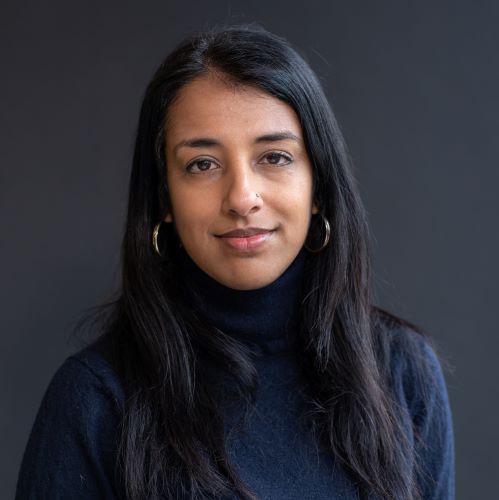-
Title
-
Megha Rajagopalan, Oral History Interview, 2023
-
Performer
-
Megha Rajagopalan
-
Interviewer
-
Dr. You Li
-
Description
-
Megha Rajagopalan is a Pulitzer Prize-winning investigative correspondent for the New York Times based in London, the United Kingdom. Previously, Rajagopalan was the China bureau chief and Asia correspondent for BuzzFeed News and a political correspondent at Reuters News Agency in Beijing, China. She has reported from 23 countries in Asia and the Middle East on stories ranging from the North Korean nuclear crisis to the peace process in Afghanistan. In 2021, Rajagopalan and her colleagues won a Pulitzer Prize in International Reporting for “a series of clear and compelling stories that used satellite imagery and architectural expertise and interviews with two dozen former prisoners to identify a vast new infrastructure built by the Chinese government for the mass detention of Muslims.” (according to the Pulitzer website). When the pandemic hit in 2020, she was a senior international correspondent for BuzzFeed News.
In this interview, she recounted the reporting and production of the project that won her team the Pulitzer Prize in International Reporting in 2021. She revealed how her team combined investigative reporting, data mapping, and architecture into journalistic storytelling, and how they collaborated remotely when travel was restricted. She also reflected on her experiences corresponding in China and working for Buzzfeed News.
-
Exact Date
-
6-5-2023
-
Run Time
-
52 minutes, 8 seconds
-
Publisher
-
Eastern Michigan University Archives
-
Rights
-
Copyright to the audio resource and its transcript, headshot, and stories is held by the content creator, author, artist, or other entity, and is provided here for educational purposes only. It may not be reproduced or distributed in any other format without written permission of the copyright owner, Eastern Michigan University Archives (lib_archives@emich.edu).
-
Subject
-
U.K., foreign correspondent, China, Pulitzer Prize, international reporting, investigative journalism, BuzzFeed News, censorship, newsroom retrenchment, business model, structural issue, gender stereotype, women in journalism, journalism, pandemic, Eastern Michigan University Archives
-
Language
-
English
 Rajagopalan soundcloud
Rajagopalan soundcloud 
